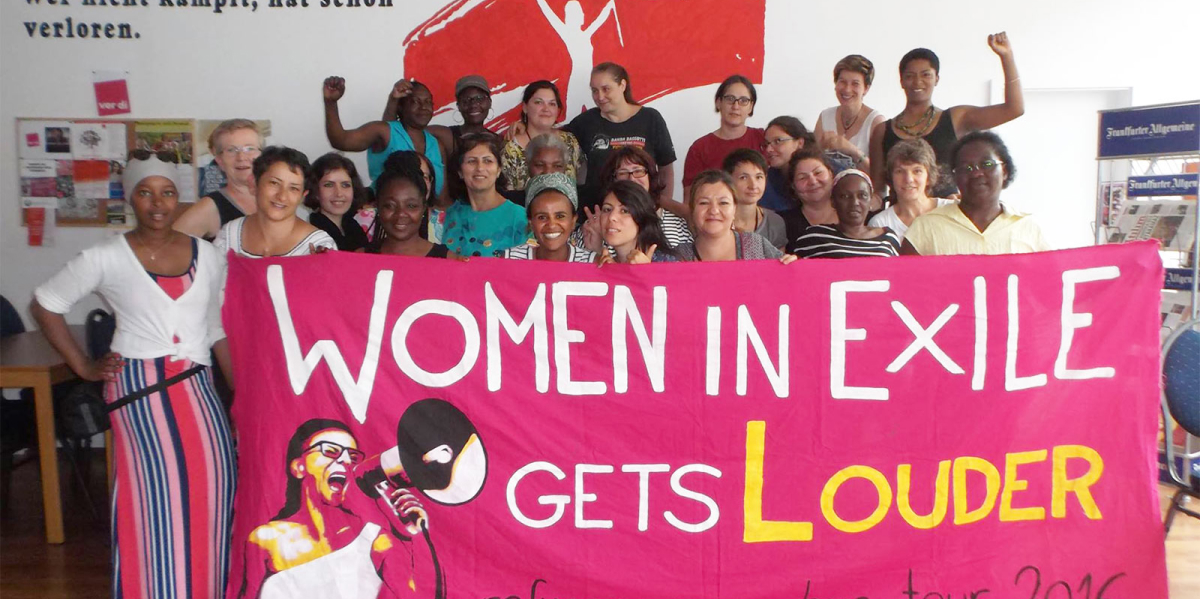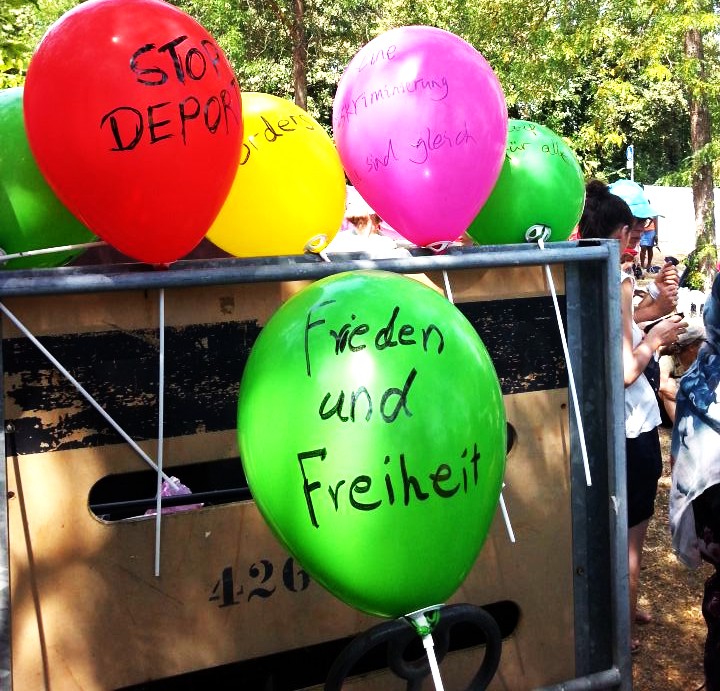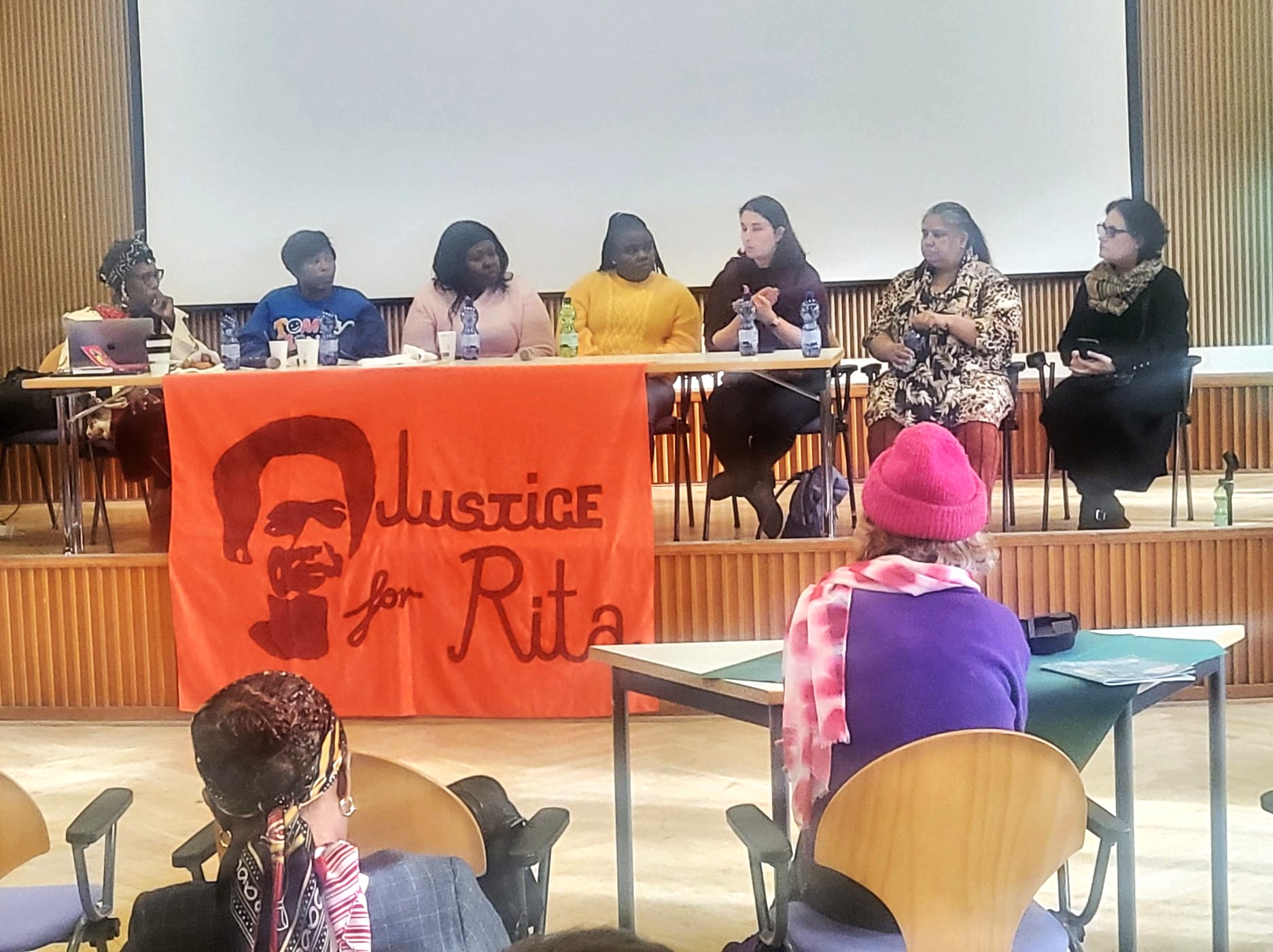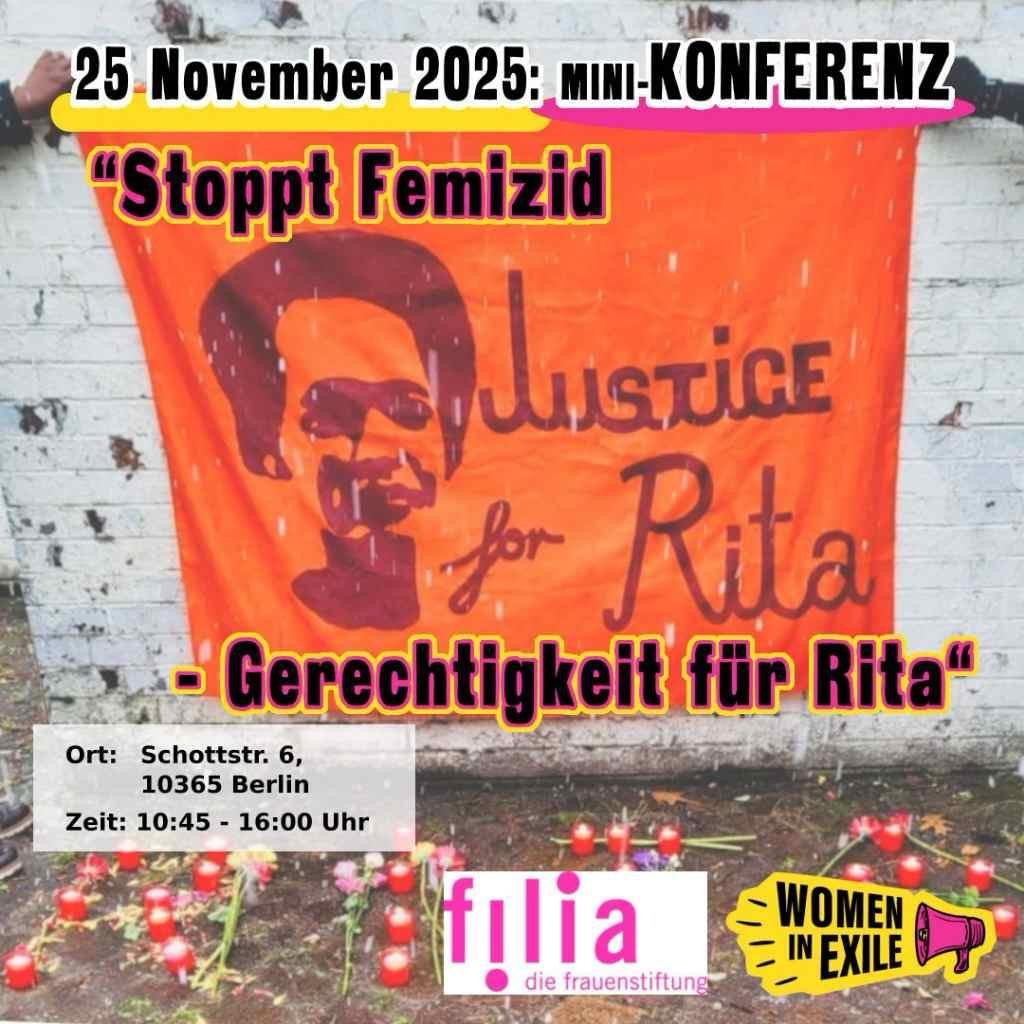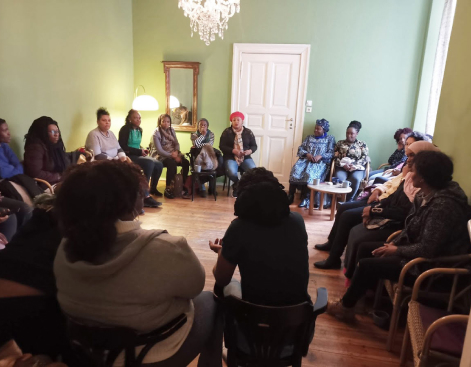
Some members of our group had the possibility to participate in a workshop on “Reproductive Justice” with professor Anne Hendrixon from the US.
The concept of “Reproductive Justice was developed in the Black feminist movement in the US. While the discussions on the topic in German leftist circles mainly focus on the right to abort, reproductive justice is about the right to have children or not as well as asking for the conditions for raising children and how these conditions influence people’s decisions.
For example, the rising right in Germany today explicitly advocates for population policy – either by proposing to fight migration through birth control in the Global South or by calling on women of German origin to have more children. In many ways, this agenda can connect to national and global policies that are already in place and against which hardly any counter-strategies exist.
Development programs in the Global South focus on decreasing birth rates, in particular in rural areas and amongst social disadvantaged groups. New long-lasting contraceptive methods – such as hormonal implants – are employed to this end in the context of public private partnerships with the pharmaceutical industry.
In Germany, the declared goal of family policy is to help fulfill people’s desire for children. But this is not aimed at everybody: People with children who do not conform to the norm image of the German middle class family receive less state support or are discriminated against: Recipients of social welfare (“Hartz-IV”) do not receive parents‘ money (“Elterngeld”), family reunions are not granted, or children without a residence permit status do not receive a place in day-care. The situation is particularly serious for refugee women*.
In our last newsletter we have already pointed out the problems of hormonal implants with expiry date which women* purchase to avoid unwanted pregnancies from being raped on their dangerous routes to Europe. In the isolated lagers in Germany, there is almost no accessible information for refugee women* on pregnancy and pregnancy termination. Thus, they are dependent on arbitrary advice given by doctors, social workers and (mainly) Christian counselling.
Due to the conditions they find in the refugee camps in Germany many women* opt against having children under these circumstances. In case they do get pregnant they are accused of “trying to get a residence permit by fraud”. Having endured pregnancy and birth the situation is not getting better.
How after delivery is one expected to share a room on the fourth floor with three others while toilets and showers are located in the basement?
Women* report on leaving their new-born babies alone behind in order to prepare food in the dirty shared kitchens 50 meters away from their rooms.
Fortunately, as refugee women* and friends we experience a lot of solidarity among each other enabling those who want children to do so.
And in the end new life always creates new hope – an act of rebellion against an inhuman system which denies our dignity!
